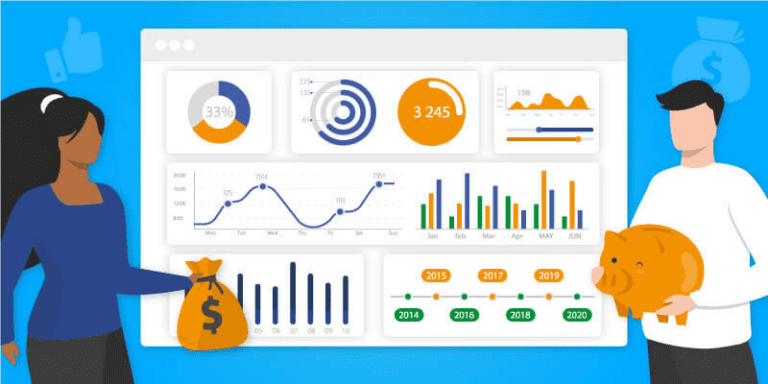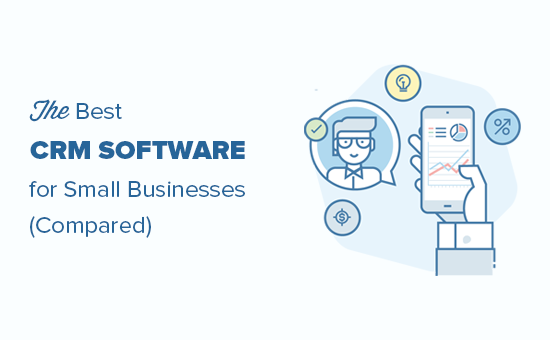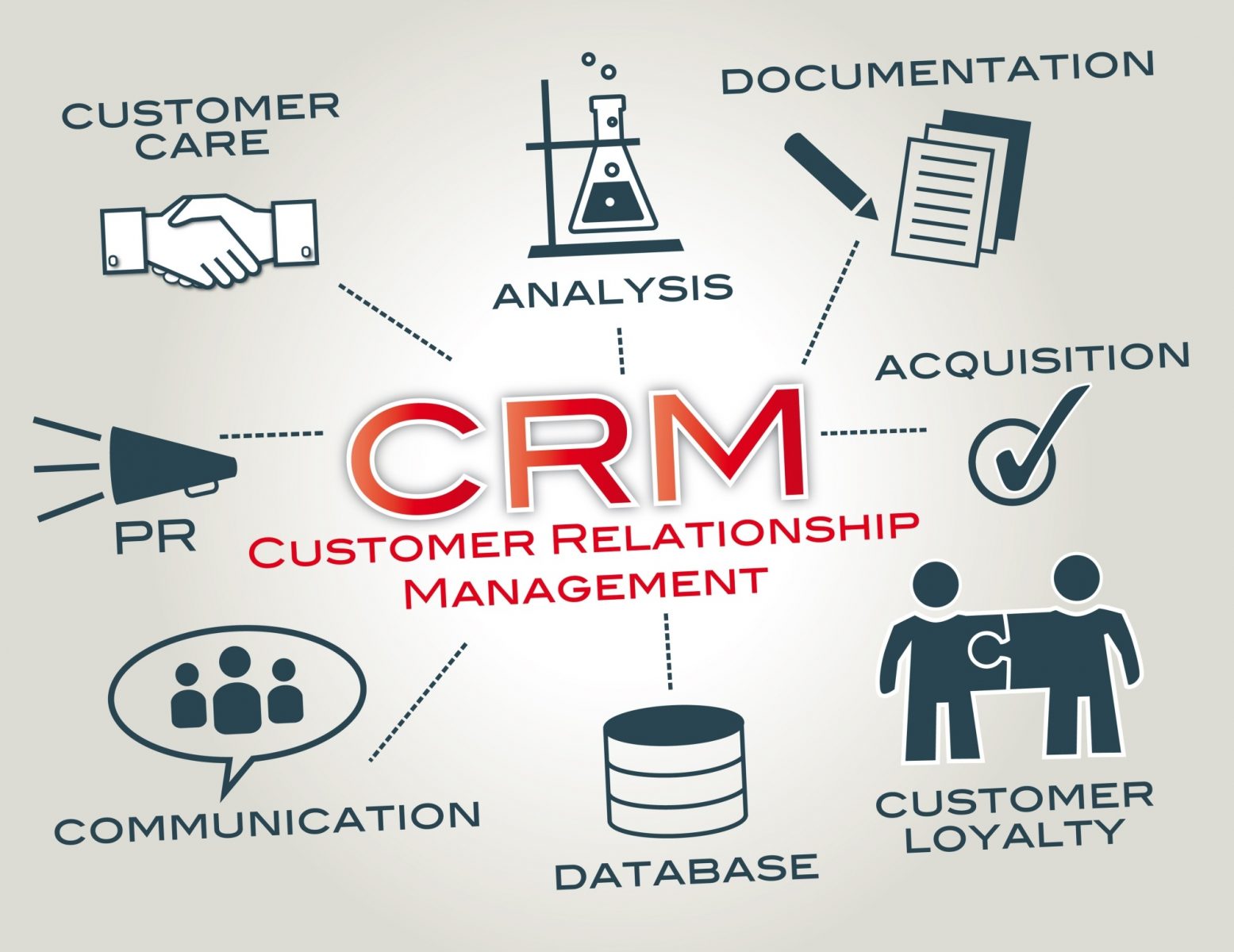Small Business CRM Showdown: Choosing the Perfect Customer Relationship Management System

Small Business CRM Showdown: Choosing the Perfect Customer Relationship Management System
Running a small business is a whirlwind. You’re juggling a million things: product development, marketing, sales, customer service, and the ever-present quest for profitability. In this chaotic landscape, one tool can be your secret weapon: a Customer Relationship Management (CRM) system. But with so many options out there, how do you choose the right one? This article dives deep into the world of small business CRMs, comparing the leading contenders and helping you make an informed decision.
Why Your Small Business Needs a CRM
Before we get into the nitty-gritty of specific CRM systems, let’s talk about *why* you need one in the first place. A CRM is more than just a contact list; it’s a central hub for all your customer interactions. Think of it as the brain of your customer relationships. Here’s why it’s crucial for small businesses:
- Improved Customer Relationships: A CRM provides a 360-degree view of your customers. You can track their interactions, preferences, and purchase history, allowing you to personalize your communication and provide better service.
- Increased Sales: By streamlining your sales process, a CRM helps you identify and nurture leads, track opportunities, and close deals more efficiently. You can automate tasks, set reminders, and focus on what matters most: selling.
- Enhanced Marketing Efforts: CRMs enable you to segment your audience, create targeted marketing campaigns, and track their performance. This leads to higher conversion rates and a better return on investment (ROI) for your marketing spend.
- Greater Efficiency: Automating tasks like data entry, email follow-ups, and appointment scheduling frees up your time to focus on more strategic initiatives. This boosts productivity and allows you to do more with less.
- Better Data Analysis: CRMs provide valuable insights into your customer behavior, sales performance, and marketing effectiveness. You can use this data to make informed decisions and improve your business strategies.
In short, a CRM is an investment in your business’s future. It helps you build stronger customer relationships, drive sales growth, and optimize your operations. Now, let’s explore some of the best CRM options for small businesses.
Top CRM Systems for Small Businesses: A Detailed Comparison
The CRM landscape is vast, with solutions catering to businesses of all sizes and needs. However, some providers consistently stand out as excellent choices for small businesses. We’ll compare some of the most popular and effective options, considering factors like ease of use, features, pricing, and integrations.
1. HubSpot CRM
Overview: HubSpot is a powerhouse in the CRM world, and its free CRM is a fantastic option for small businesses just starting. It’s known for its user-friendliness, comprehensive features, and seamless integration with HubSpot’s marketing, sales, and service hubs.
Key Features:
- Contact Management: Store and organize contact information, track interactions, and segment your audience.
- Deal Tracking: Manage your sales pipeline, track deal progress, and forecast revenue.
- Email Marketing: Create and send email campaigns, track open rates, and analyze performance.
- Sales Automation: Automate tasks like email follow-ups, task creation, and deal updates.
- Reporting and Analytics: Gain insights into your sales performance, marketing effectiveness, and customer behavior.
- Free Plan: Offers a generous free plan with core features, making it accessible for startups.
Pros:
- Free Plan: Excellent value for small businesses on a budget.
- User-Friendly Interface: Easy to learn and use, even for non-technical users.
- Comprehensive Features: Offers a wide range of features for sales, marketing, and customer service.
- Seamless Integrations: Integrates well with other popular tools and platforms.
- Excellent Support: Provides extensive documentation, tutorials, and community support.
Cons:
- Limited Customization: The free plan has limitations on customization options.
- Scalability Concerns: While scalable, more advanced features and functionality require paid plans.
Pricing: HubSpot offers a free plan, with paid plans starting at around $45 per month, billed annually, and scaling up based on feature sets and usage.
Ideal for: Small businesses looking for a user-friendly, all-in-one CRM with robust free features. Great for those who also plan to leverage marketing automation.
2. Zoho CRM
Overview: Zoho CRM is a versatile and affordable CRM solution that caters to businesses of all sizes. It’s known for its extensive features, customization options, and integration capabilities.
Key Features:
- Contact Management: Manage contacts, track interactions, and segment your audience.
- Sales Automation: Automate tasks like lead assignment, email follow-ups, and workflow processes.
- Lead Management: Capture leads, qualify them, and nurture them through the sales pipeline.
- Sales Force Automation: Manage your sales pipeline, track deals, and forecast revenue.
- Reporting and Analytics: Generate reports, analyze sales performance, and gain insights into your customer behavior.
- Customization Options: Offers extensive customization options to tailor the CRM to your specific needs.
Pros:
- Affordable Pricing: Offers a range of affordable plans to suit different budgets.
- Extensive Features: Provides a comprehensive set of features for sales, marketing, and customer service.
- Customization Options: Allows for extensive customization to meet your specific business needs.
- Integration Capabilities: Integrates with a wide range of third-party applications.
- Scalability: Can scale to accommodate the needs of growing businesses.
Cons:
- Steeper Learning Curve: The extensive features can make it more complex for new users.
- Interface Can Feel Dated: The user interface may not be as modern as some competitors.
Pricing: Zoho CRM offers a free plan for up to 3 users, with paid plans starting at around $14 per user per month, billed annually, and scaling up based on features and usage.
Ideal for: Small businesses looking for a feature-rich, customizable, and affordable CRM solution.
3. Pipedrive
Overview: Pipedrive is a sales-focused CRM designed to help sales teams manage their leads, track deals, and close more deals. It’s known for its intuitive interface, visual pipeline, and ease of use.
Key Features:
- Visual Sales Pipeline: Visualize your sales pipeline and track deals through each stage.
- Lead Management: Capture leads, qualify them, and nurture them through the sales pipeline.
- Deal Tracking: Track deal progress, set reminders, and forecast revenue.
- Email Integration: Integrate with your email provider to track email interactions and send emails from within the CRM.
- Automation: Automate tasks like email follow-ups, task creation, and deal updates.
- Reporting and Analytics: Generate reports, analyze sales performance, and gain insights into your sales process.
Pros:
- User-Friendly Interface: Easy to learn and use, with a focus on sales productivity.
- Visual Pipeline: Provides a clear and intuitive view of your sales pipeline.
- Sales-Focused Features: Designed specifically for sales teams to manage their leads and close deals.
- Excellent Integrations: Integrates with a wide range of popular tools and platforms.
- Mobile App: Offers a mobile app for managing your sales on the go.
Cons:
- Limited Marketing Features: Not as strong in marketing automation compared to other CRMs.
- Less Customization: Offers fewer customization options than some competitors.
Pricing: Pipedrive offers a range of paid plans, starting at around $14.90 per user per month, billed annually, and scaling up based on features and usage.
Ideal for: Small businesses with a strong focus on sales and a need for a visual and intuitive sales pipeline.
4. Freshsales (Freshworks CRM)
Overview: Freshsales, part of the Freshworks suite, is a sales CRM that focuses on providing an all-in-one solution for sales teams. It’s known for its ease of use, built-in features, and affordable pricing.
Key Features:
- Contact Management: Store and organize contact information, track interactions, and segment your audience.
- Deal Management: Manage your sales pipeline, track deals, and forecast revenue.
- Lead Scoring: Automatically score leads based on their behavior and engagement.
- Email Tracking: Track email opens, clicks, and replies.
- Built-in Phone: Make and receive calls directly from within the CRM.
- Reporting and Analytics: Generate reports, analyze sales performance, and gain insights into your sales process.
Pros:
- User-Friendly Interface: Easy to learn and use, with a clean and intuitive design.
- All-in-One Solution: Provides a comprehensive set of features for sales teams.
- Built-in Features: Offers built-in features like phone and email tracking.
- Affordable Pricing: Offers a range of affordable plans to suit different budgets.
- Excellent Support: Provides extensive documentation, tutorials, and customer support.
Cons:
- Limited Free Plan: The free plan has limited features and user capacity.
- Less Customization: Offers fewer customization options than some competitors.
Pricing: Freshsales offers a free plan with limited features, with paid plans starting at around $15 per user per month, billed annually, and scaling up based on features and usage.
Ideal for: Small businesses looking for an all-in-one sales CRM with built-in features and affordable pricing.
5. Agile CRM
Overview: Agile CRM is a comprehensive CRM that offers a blend of sales, marketing, and customer service features. It’s known for its affordability, ease of use, and integration capabilities.
Key Features:
- Contact Management: Manage contacts, track interactions, and segment your audience.
- Sales Automation: Automate tasks like lead assignment, email follow-ups, and workflow processes.
- Marketing Automation: Create and manage email campaigns, track website activity, and automate marketing workflows.
- Helpdesk: Provide customer support through a built-in helpdesk.
- Reporting and Analytics: Generate reports, analyze sales performance, and gain insights into your customer behavior.
- Integration Capabilities: Integrates with a wide range of third-party applications.
Pros:
- Affordable Pricing: Offers a range of affordable plans, including a free plan.
- Comprehensive Features: Provides a wide range of features for sales, marketing, and customer service.
- Ease of Use: Easy to learn and use, with a user-friendly interface.
- Integration Capabilities: Integrates with a wide range of third-party applications.
- Free Plan: Offers a generous free plan with core features.
Cons:
- Interface Can Feel Dated: The user interface may not be as modern as some competitors.
- Reporting Capabilities Could Be Better: Reporting features might be less robust compared to some competitors.
Pricing: Agile CRM offers a free plan for up to 10 users, with paid plans starting at around $14.99 per user per month, billed annually, and scaling up based on features and usage.
Ideal for: Small businesses looking for an affordable, all-in-one CRM with sales, marketing, and customer service features.
Choosing the Right CRM: Key Considerations
Choosing the right CRM is a crucial decision that will impact your business’s efficiency and effectiveness. Here are some key considerations to guide your selection process:
- Your Business Needs: What are your specific needs? Do you need a CRM primarily for sales, marketing, or customer service? Identify your key priorities and choose a CRM that aligns with them.
- Budget: How much are you willing to spend? CRM pricing varies widely, so set a budget and compare options that fit within it. Consider both the initial cost and ongoing subscription fees.
- Ease of Use: Is the CRM user-friendly? A complex CRM can be a barrier to adoption. Choose a CRM that is easy to learn and use, even for non-technical users.
- Features: What features do you need? Consider features like contact management, sales automation, email marketing, reporting, and integrations. Make sure the CRM offers the features that are essential for your business.
- Integrations: Does the CRM integrate with your existing tools and platforms? Check if the CRM integrates with your email provider, accounting software, marketing automation tools, and other applications you use.
- Scalability: Can the CRM scale with your business? As your business grows, you’ll need a CRM that can handle increasing data volumes and user numbers.
- Customer Support: What level of customer support is available? Choose a CRM provider that offers excellent customer support, including documentation, tutorials, and responsive assistance.
- Free Trials and Demos: Take advantage of free trials and demos to test out different CRM systems and see which one best suits your needs.
Step-by-Step Guide to Selecting a CRM
Here’s a step-by-step guide to help you select the ideal CRM for your small business:
- Define Your Needs: Identify your business goals, challenges, and requirements for a CRM. What problems are you trying to solve? What processes do you want to improve?
- Research Options: Research the various CRM systems available, considering their features, pricing, and reviews.
- Create a Shortlist: Narrow down your options to a shortlist of 3-5 CRM systems that seem like a good fit for your needs.
- Evaluate Your Shortlist: Compare the shortlisted CRM systems based on your key considerations, such as features, pricing, ease of use, and integrations.
- Request Demos and Trials: Request demos and free trials to test out the CRM systems and see how they work in practice.
- Get Feedback from Your Team: Involve your team in the evaluation process and gather their feedback on the different CRM systems.
- Make a Decision: Based on your evaluation and feedback, choose the CRM system that best meets your needs and budget.
- Implement and Train: Implement the CRM system and provide training to your team to ensure they can use it effectively.
- Monitor and Optimize: Monitor the performance of the CRM system and make adjustments as needed to optimize its use.
Final Thoughts
Choosing the right CRM is a significant investment for any small business. By carefully evaluating your needs, researching your options, and comparing the leading CRM systems, you can find the perfect solution to boost your sales, improve customer relationships, and drive business growth. Remember to consider factors like ease of use, features, pricing, and integrations. Don’t be afraid to test out different options and take advantage of free trials before making a final decision. With the right CRM in place, your small business can thrive in today’s competitive landscape.
Good luck, and happy CRM-ing!




